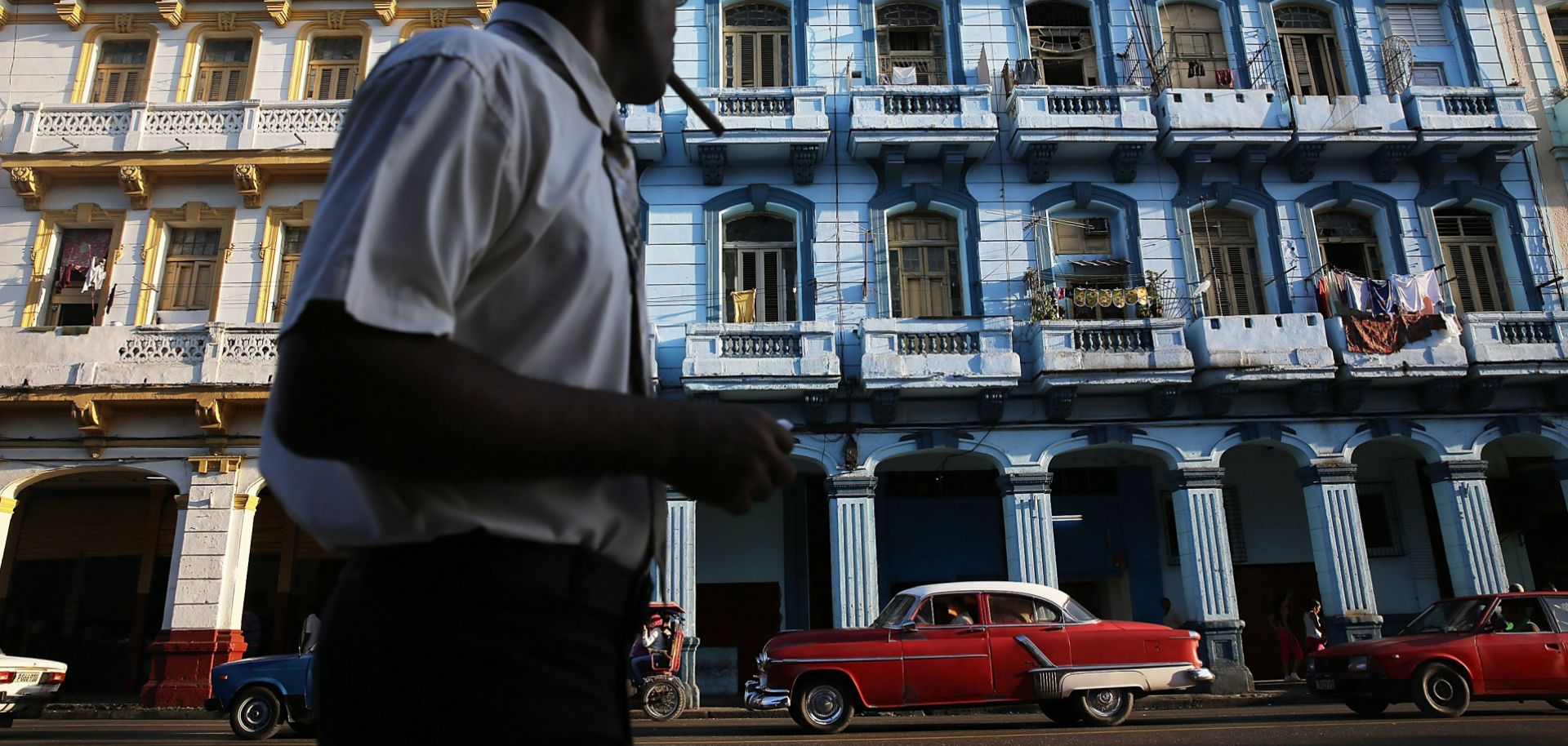ASSESSMENTS
As Venezuela Falters, Cuba Works to Avoid Another 'Special Period'
Oct 13, 2017 | 17:32 GMT

Car ownership in Cuba lags behind other Caribbean nations. Nevertheless, the loss of Venezuelan oil could hamper the country's budget.
(JOE RAEDLE/Getty Images)
Highlights
- Cuban President Raul Castro will hand power to a successor, likely Miguel Diaz-Canel, by February 2018. The new president will likely maintain Cuba's current policies toward Venezuela and the United States.
- Cuba's government will attempt to wean itself off Venezuelan energy shipments while trying to diversify its import sources. In the meantime, Cuba will keep importing oil and fuel from Venezuela at current levels for as long as it can.
- To accomplish this goal, the Cuban government will continue to try to keep pro-Cuban Venezuelan officials, such as President Nicolas Maduro, in key positions of power.
Subscribe Now
SubscribeAlready have an account?
